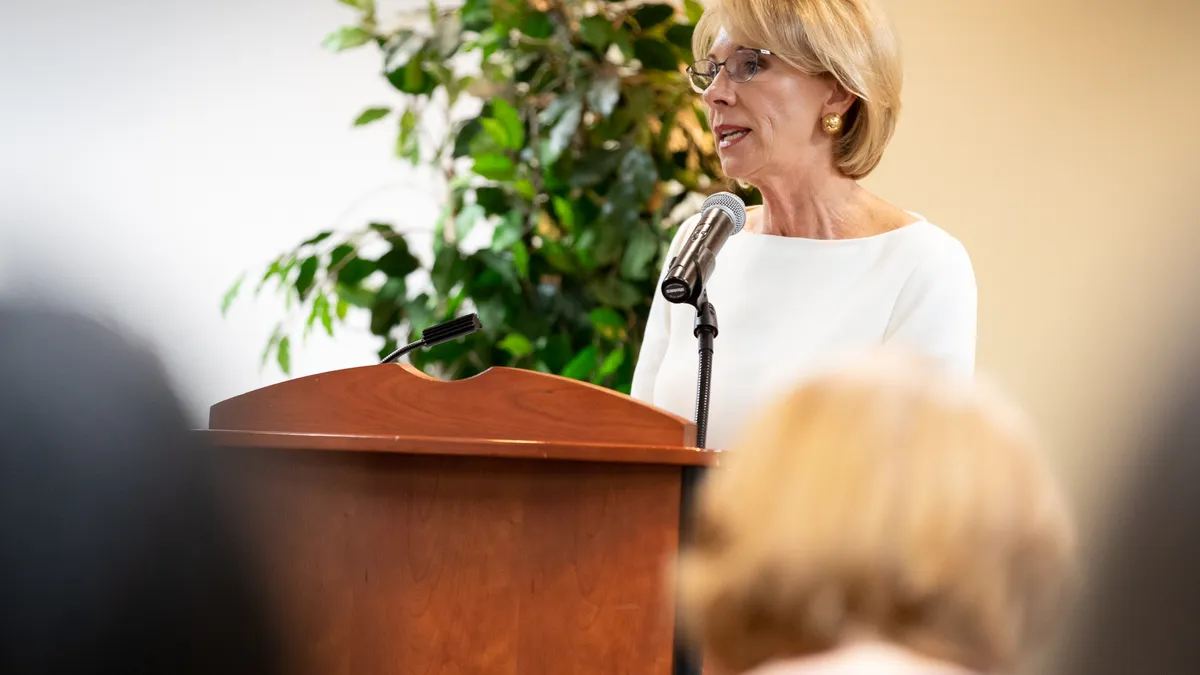Dive Brief:
-
The U.S. Department of Education released its final rule Wednesday that means to protect faith-based colleges and student groups while bolstering campus free speech.
-
The department emphasized in the rule that public institutions must comply with the First Amendment to receive federal grants. The regulation also requires that religious student organizations be given the same benefits as nonsecular groups. And it outlines how religious-affiliated colleges can claim exemptions to Title IX, the federal law banning sex discrimination.
-
Policy experts have previously said the rule is largely redundant. Public colleges, as government entities, already must meet constitutional mandates, and court precedent and existing laws already allow for exceptions to Title IX.
Dive Insight:
The White House has promoted free speech and religious liberties on college campuses for years. As early as 2017, President Donald Trump was threatening to take away federal funding from the University of California, Berkeley, following violent protests there against conservative firebrand Milo Yiannopoulos that prevented him from giving a planned speech at the university. In his tweet, however, Trump neglected to mention that the university had allowed Yiannopoulos to speak.
Last year, Trump signed an executive order that directed federal agencies to ensure institutions were meeting their First Amendment or free speech obligations, for public or private schools, respectively. If they were not, their access to federal research funds would be jeopardized.
At the time, the president of higher education's top industry group said the order was "unnecessary." Many sector pundits reacted similarly to the new rule, which cites the new order and was released in draft form in January. The final version will take effect 60 days after it is published in the Federal Register. It does not vary drastically from the original proposal.
The rule's provision that dictates public and private colleges must follow either the First Amendment or free expression policies draws on a Supreme Court case. Trinity Lutheran v. Comer found the government can't deny religious groups federal funding they're eligible for solely based on their nonsecular status.
The Trump administration, in the regulation, attempts to extend the ruling down to religious student groups at public colleges, stressing that they can use campus facilities and take advantage of funding from student fees similar to any other organization.
The department received more than 17,000 comments on the draft rule, some of which raised concerns about enforcement. But the Education Department wrote in the final version that it would only take action against colleges that had a "final, non-default judgment" against them in a state or federal court.
"Rather than expose institutions to liability from frivolous litigation, the Department anticipates that State and Federal courts will continue to recognize and dismiss any frivolous claims and adjudicate meritorious claims to appropriately vindicate the free speech rights of students, faculty, administrators, and other stakeholders," the rule states.















